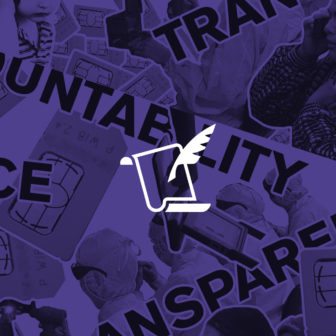Tag: Internet Governance
Kroes sidesteps net neutrality at Access event
A week after Commissioner for Digital Agenda Neelie Kroes requested that the European Parliament help save European citizens’ “right to access the open internet by guaranteeing net neutrality” in a speech on May 30 in Brussels, Kroes avoided language that would have directly supporting net neutrality while speaking at a panel event organized by Access at the European Parliament.
It’s time for companies to act: US eases sanctions on export of tech to Iran
Yesterday the US government announced a new round of sanctions relief for Iranian citizens, providing users with easier access to the internet and a wide range of personal communications technologies. With the road to export without the need for specific licenses explicitly cleared, now is the time for these companies to make their products and services available to Iranian users.
Network Neutrality undermined by discriminatory practices by European network operators
An analysis of the growing problem of network discrimination in Europe.
Latin American Civil Liberties groups urge MEPs to protect privacy
Today, civil liberties groups from across Latin America sent a letter to the European Parliament, urging the lead Committee working on the Data Protection Regulation to protect the privacy of citzens in the EU and around the world.
WTPF: expected outcomes, revealing debate
The UN World Telecommunication Policy Forum (WTPF) concluded yesterday in Geneva, with the adoption of six opinions to guide international policy on broadband and internet exchange point (IXP) deployment, as well as internet governance. That was exactly the plan–but what happened over the course of the three day meeting is revealing for the future of internet governance reform.
US House of Representatives Bill on IG unnecessary and potentially harmful to diplomacy
Yesterday, the US House of Representatives voted unanimously to pass a bill on internet governance that was superfluous, misguided, and potentially harmful to ongoing international negotiations on internet governance.
Chilean judge rules parody Twitter account not a criminal offense
Last month, a Chilean criminal court dismissed all charges against Rodrigo Ferrari, who was charged in February with the criminal offense of “identity usurpation,” for allegedly authoring the twitter accounts @losluksic, @luksicandronico, and @andronicoluksic, Twitter accounts that parodied the activities of the Luksic family, among the wealthiest families in Chile.
Cautious optimism as US privacy oversight board finally confirms chair
The US Senate finally voted to confirm David Medine as the first Chair of the Privacy and Civil Liberties Oversight Board (PCLOB), a government oversight body charged with protecting privacy and civil liberties in the United States.
WTPF: it all comes back around
Tomorrow the World Telecommunication Policy Forum (WTPF), a meeting hosted by the UN’s International Telecommunication Union (ITU), will kick off in Geneva. The meeting, meant to provide a venue for governments and industry to discuss key policy issues in today’s telecommunications and information and communication technology (ICT) environment, has declared its theme for 2013 to be internet-related public policy. For the next three days, the Member States of the ITU, i.e. governments, are expected to discuss and adopt opinions that will guide international internet policy making. But if recent history is a guide, chances are it won’t be so simple.

Access joins coalition for EU Naked Citizens campaign
Today a coalition of civil rights groups warned that citizens could be stripped of their right to privacy by dangerous EU Parliament proposals. The coalition — including Access, EDRi, Privacy International, Bits of Freedom, Panoptykon, La Quadrature du Net, Open Rights Group and Digitale Gesellschaft — released a report detailing the most dangerous amendments to the Data Protection Regulation and a website, nakedcitizens.eu where citizens can take direct action to contact Members of the European Parliament to demand that they protect their fundamental rights.